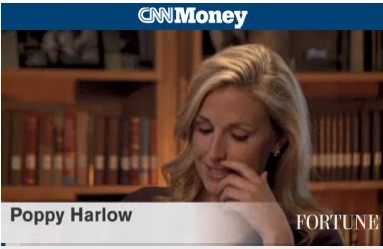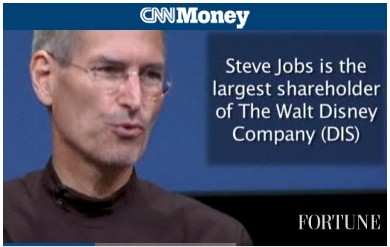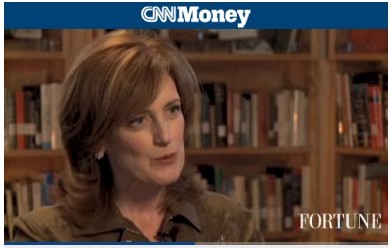fortune:社交游戏将成为整个游戏工业的发展未来
游戏已经非常流行,而最近谷歌、迪士尼和Gamestop进行的收购交易表明,社交游戏也注定将成为利润丰厚的一个领域。目前,社交游戏玩家总数已经达到数亿人,可以说触及范围无处不在,并且像电视频道黄金时段的节目一样,成为一种主流。
发展初期不受认可
但实际上,几年之前情况并非如此。尽管社交游戏具有任天堂游戏般的显示界面和简单的玩法,但当时持怀疑态度者根本对社交游戏不予理会。社交游戏开发商 PlayFirst曾推出过一款类似于农场类游戏FarmVille的游戏,名为“Diner Dash”。这款游戏在不到两年的时间里为PlayFirst带来了3500万美元的营收。然而,当时社交游戏仍被冠以昙花一现的命运前景。
只有在Zynga的农场游戏FarmVille大获成功,每月活跃用户达8000万,而且用户付费购买拖拉机、燃料、动物等虚拟商品的时候,投资者才改变了他们对社交游戏的态度。
现在,当时持怀疑态度的投资者不仅开始认真对待社交游戏,而且希望采取具体行动。据悉,谷歌向社交游戏开发商Zynga投资了1亿美元到2亿美元,而这家曾经开发了FarmVille、Mafia Wars和Zynga Poker等多款流行社交游戏的开发商仅去年一年就融资约5亿美元,包括日本软银投资的1.5亿美元,俄罗斯DST投资集团和老虎环球的1.8亿美元。
本周早些时候,社交游戏的风潮仍在继续:迪士尼继本月早些时候收购iPhone游戏开发商Tapulous之后,又以最高7.63亿美元的价格收购了社交游戏开发商Playdom,其中5.63亿美元为现金,另外还将根据Playdom旗下游戏的表现支付最多2亿美元。Playdom开发的游戏包括在社交网站Facebook上广受欢迎的《联谊生活》(Sorority Life)、《市场街道》(Market Street)、《Bola》和《社交城市》(Social City)等。
另外,美国最大的视频游戏和游戏机零售商GameStop收购了在线游戏发行商Kongregate,表明GameStop也急不可待地进入了社交游戏领域。
比传统视频游戏更具盈利前景
社交游戏的吸引力到底何在?在上周末的《财富》头脑风暴科技大会(Fortune Brainstorm Tech)上,传媒业巨头大腕们给出了自己的见解。已经在视频游戏领域摸爬滚打了20余年的暴雪CEO鲍勃·科蒂克(Bobby Kotick)提到,现在29%的小孩和年轻人在看电视的同时还做其它的事情,例如玩游戏。
很多媒体业巨头认为,视频游戏将成为普通人休闲生活不可缺少的一部分,因此都希望进军这一产业。Zynga的新款游戏FrontierVille在推出仅仅 36天就获得了2000万玩家,然而大型多人在线角色扮演游戏《魔兽世界》在推出近4年后才宣布获得了1100万活跃玩家。因此,视频游戏产业的新军都认为,机遇存在于电视和电脑以外的平台。
理想地讲,视频游戏最好包括付费内容,也就是消费才愿意在看电视的同时去购买的内容。Demand Media首席执行官理查德·罗森布拉特(Richard Rosenblatt)表示:“这再次成为电子商务的发展机会。”而洛杉矶Greycroft Partners的风投资本家达娜·塞特尔(Dana Settle)则在自己的笔记本上写道:“互动电视的时代到了。”
游戏已经成为吸引互联网用户掏腰包的最有效方式。Slide是一家由PayPal 联合创始人马克斯·列夫琴(Max Levchin)在2005年创立的在线游戏和娱乐公司。Slide有一个有趣的发现,即55岁的女性是最愿意在Slide游戏中付费的用户群体,她们支出大笔现金用于购买游戏中的虚拟商品,或许是因为她们已经看腻了电视?
社交游戏则提供了一种比传统视频游戏更具盈利前景的业务模式。《GameExec》杂志和Games Industry电视创办人、分析师斯科特·斯坦伯格(Scott Steinberg)表示,由于传统的游戏需要一个初期购买费用,因此游戏发行商可以有效地获得营收来源。相比之下,社交游戏采用的是免费入门的模式,因此游戏发行之后可以吸引更多的玩家,这也给游戏发行商提供了另外一种盈利模式:玩家付费购买虚拟商品,获得游戏新级别或独特游戏装备等。斯坦伯格表示,事实上,社交游戏的这种模式可以为游戏发行商及其投资者带来更多的营收。另外,免费入门的游戏很有可能使用户成为“超级玩家”,即轻松为某款虚拟产品中支付上百美元。斯坦伯格说:“从发行商的角度看,这比一次性支付15美元的游戏模式更具有吸引力。”
我们再回到迪士尼的交易。迪士尼媒体网络负责人安妮·斯文妮(Anne Sweeney)表示,电视不仅仅是一款普通的家电,而是具有无限可能的产品。迪士尼CEO鲍勃·伊格尔(Bob Iger)大规模改变发展战略的做法说明了这一点。
在伊格尔的领导下,迪士尼更换了旗下ABC(美国广播公司)首席执行官史蒂夫·麦克佩尔森(Steve McPherson),并斥巨资收购了Playdom,这些措施都是为了推出更多平台的产品。
斯文妮表示:“我们无法坚持一种固定的商业模式。”她表示迪士尼希望实行“混合”商业模式,而这种模式中当然包括游戏在内。(source:tencent)
FarmVille. Mafia Wars. Pet Society. With their collective userbases numbering in the hundreds of millions, social gaming is as ubiquitous and mainstream as primetime TV programming.
But for years that wasn’t the case — skeptics disregarded social games, with their Super Nintendo-like graphics and simplified gameplay. Despite early successes like Diner Dash, which game maker PlayFirst announced raked in $35 million revenue almost two years before FarmVille came along, social gaming was branded a fad. Only when Zynga’s farming simulator skyrocketed to success and eventually enlisted a whopping 80 million active monthly users paying for virtual goods like tractors, fuel, and animals, would potential investors say otherwise.
Now, not only are those same investors taking social gaming seriously, they’re negotiating for a piece of the action. Google reportedly (GOOG) invested anywhere between $100 and $200 million dollars in Zynga, the maker of games like FarmVille, Mafia Wars, and Zynga Poker. The company has reportedly raised around $500 million in the past year, including $150 million from Softbank Capital and $180 million from Digital Sky Technologies and Tiger Global.
Earlier this week, the social gaming love continued: Walt Disney (DIS), which had picked up iPhone gaming start-up Tapulous earlier this month for an unspecified amount, also bought Playdom Social Games, announcing it will pay as much as $763 million — $563 million upfront and $200 million more if the company behind Facebook games like Sorority Life and Social City reaches certain unannounced growth targets. What’s more, Gamestop (GME) purchased online-game maker Kongregate, signaling the retail category killer desire to (finally) capitalize on social gaming’s success.
What’s the attraction? Attendees of Fortune Brainstorm Tech this past weekend heard earfuls about how social games are transforming media and the Internet. Activision Blizzard (ATVI) CEO Bobby Kotick, who has been playing in the video-game field for two decades, noted that 29% of kids and teens today multi-task while watching TV.
Many media conglomerates see that videogames are an ever-growing piece of the average consumer’s leisure activity — and want to get in on them. Games like Zynga’s new FrontierVille broke records when it claimed 20 million users in 36 days. In contrast, nearly four years passed before the massive online multiplayer role-playing game World of Warcraft could claim 11 million active players.
Hence, the opportunity for interlopers to deliver content on platforms beyond TV and the desktop computer.
Ideally, this will be paid content. This would include products consumers shop for — maybe via games while they watch TV. “It’s a great time for e-commerce again,” speculated Demand Media CEO Richard Rosenblatt. Another Brainstorm attendee, Los Angeles-based venture capitalist Dana Settle of Greycroft Partners, said that she jotted down in her notebook: “Interactive TV really is here.”
Games happen to be the most clever and efficient way to get Internet users to provide credit card info. “Games are the path of least resistance,” said Keith Rabois, VP of strategy and business development at Slide, an online game-and-entertainment company launched in 2005 by PayPal co-founder Max Levchin. Turns out, 55-year-old women are the most lucrative gamers for companies like Slide. They spend gobs of real money on virtual gifts… maybe because they’re bored by TV?
Social gaming also presents a much more profitable model than traditional video games ever did. Because old-school games require an initial purchase fee, publishers were effectively capping their revenue stream, notes analyst Scott Steinberg, founder of GameExec magazine and Games Industry TV. Comparatively, social games are free-to-play right out of the gate and therefore initially more accessible, making money via the micro-transaction model: small fees for virtual goods for additional content like new levels of play, exclusive characters, and so on. According to Steinberg, publishers (and their investors) can actually make more money this way. Moreover, in free-to-play games, he sees more users becoming ‘super users’ who easily spend hundreds of dollars on a particular product. Says Steinberg: “From a publisher’s perspective, that’s a hell of a lot more attractive than spending $15 a month for an all-you-can-eat buffet of content.”
Which brings us back to Disney. Anne Sweeney, who oversees Disney’s media networks including ABC, told Fortune before her on-stage interview at Brainstorm that she’s more jazzed than ever by the opportunity to get out of the traditional box. “TV isn’t just the stationary box in your house,” she said. “It’s a box of infinite possibilities.”
That would be hype if Disney, under CEO Bob Iger, weren’t aggressively transforming its growth strategies. Besides replacing ABC programming chief Steve McPherson (in an effort to pull the broadcast network from third place), it is making acquisitions like Playdom and aiming to produce more multi-platform programming like Lost — which bears the indelible influence of Apple (AAPL)
CEO Steve Jobs, Disney’s largest shareholder. (See “Steve Job’s mark on ABC’s Lost.”)
“We just can’t say we have one business model and that’s it,” Sweeney told CNNMoney’s Poppy Harlow in the video below, shot at Brainstorm Tech. When Sweeney says that Disney is interested in “hybrid” models, it’s natural to speculate that she has games on her mind.










































 闽公网安备35020302001549号
闽公网安备35020302001549号